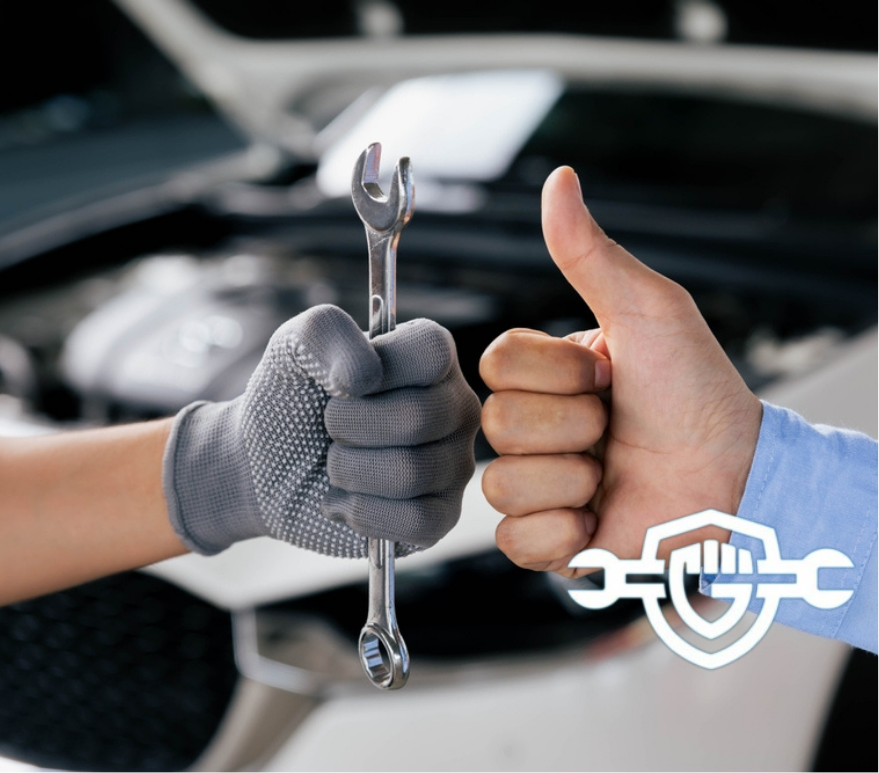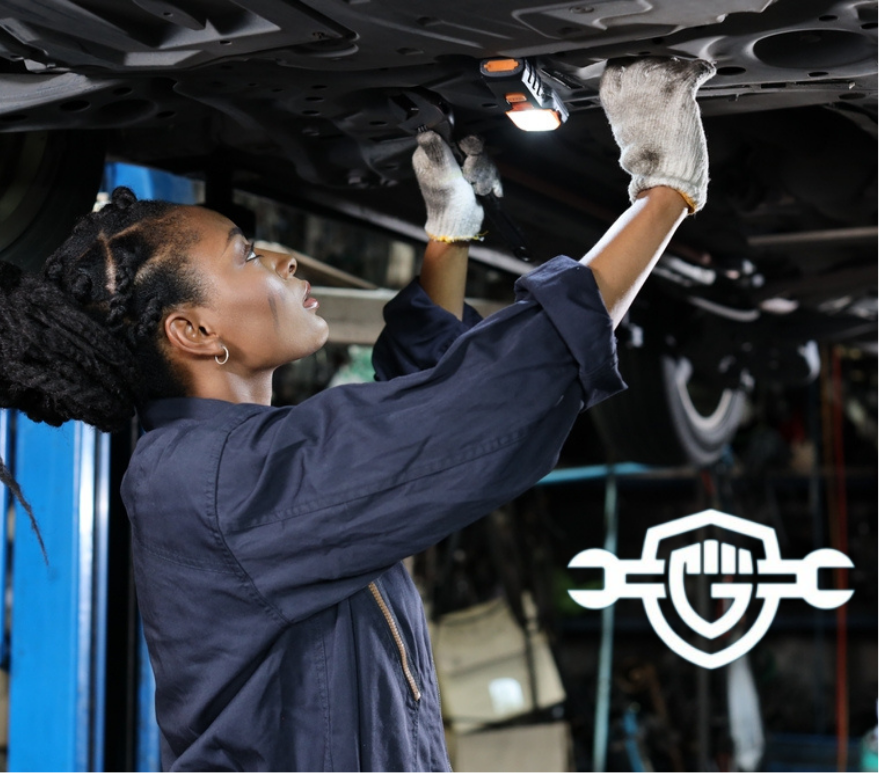5 Reasons Your ABS Light Is On
Published on
May 23, 2025
.png)
1. Low Brake Fluid Levels
Low brake fluid is one of the most common reasons the ABS light turns on. Brake fluid is essential for your braking system to function properly. When levels get too low, sensors in the reservoir can trigger the ABS light on the dash as a warning.
Why does brake fluid drop?
- Worn brake pads causing extended caliper travel
- Small leaks in brake lines, hoses, or the master cylinder
- Air pockets in the system from incomplete bleeding
Even if your brakes seem to work fine, low fluid can signal bigger problems down the line.
How to fix it: Don’t just top it off. You’ll want to have the system inspected to find out why the fluid is low. Catching a leak early can prevent brake failure and keep your ABS system working the way it should.
2. Faulty ABS Wheel Speed Sensor
Each wheel has a speed sensor that feeds data to the ABS module. If one of these sensors fails, the system can't properly detect wheel movement, and you’ll see the ABS light on the dash.
Common causes of sensor problems:
- Dirt or debris covering the sensor
- Corroded or broken wiring
- Internal sensor failure
You might also notice your traction control or stability control lights coming on. The vehicle could behave differently when braking at slow speeds.
How to fix the ABS light on a car in this case: The sensor may need to be cleaned, reconnected, or replaced. A diagnostic scan will identify the faulty wheel and take the guesswork out of the repair.
3. Malfunctioning ABS Module
The ABS module is like the command center for your anti-lock braking system. It takes information from your sensors and controls hydraulic valves to manage brake pressure. If the module fails, you’ll lose ABS function, and the ABS light will stay on.
Common signs of a faulty module:
- ABS and brake lights are both on
- Brakes still work, but ABS does not activate
- Intermittent or total system failure
How to fix it: Module failure usually requires replacement and reprogramming. We use professional tools to verify whether the issue lies in the module itself or the wiring leading to it. Either way, the team at any of our local GreatWater 360 Auto Care-affiliated locations will make sure the fix is accurate and long-lasting.
4. Blown Fuse or Electrical Issue
ABS systems rely heavily on your car’s electrical components. If a fuse blows, or if there’s damage to the wiring, it can cut power to the ABS and immediately trigger the ABS light.
What causes these issues?
- Corrosion in fuse boxes or connectors
- A weak battery or poor ground connection
- Rodent damage to wiring
- Faulty relays or worn-out fuses
How to fix the ABS light on your car for electrical issues: Start with a fuse check. If that’s not the problem, we’ll do voltage testing and continuity checks on the wiring and relays.
5. Worn Brake Pads or Other Brake System Problems
Even though the ABS is a separate system, it’s still tied closely to your brakes. If your brake pads are too worn or your rotors are warped, it can throw off sensor readings or create vibrations that trigger the ABS light on the dash.
Additional brake-related causes:
- Uneven pad wear or brake drag
- Air in the brake lines
- Sticky calipers or damaged rotors
What to watch for:
- Brake warning light comes on with the ABS light
- Grinding or pulsing under the brake pedal
- Soft pedal feel or slow stopping response
How to fix it: A full brake inspection will show whether the problem is with your pads, rotors, or other components. Replacing worn parts restores proper function and helps your ABS do its job correctly.
So, How Do You Fix the ABS Light on a Car?
There’s no one-size-fits-all answer for how to fix the ABS light on a car. It depends on what’s causing it. That’s why your first step should always be a professional diagnostic check.
Here’s what we recommend:
- Don’t ignore the light. Even if your brakes feel normal, your ABS system may not work when you need it.
- Avoid guessing. Replacing random parts won’t solve the issue and can cost you more in the long run.
- Get it properly diagnosed. Our team uses advanced scan tools to pinpoint the problem quickly and accurately.
Once we identify the cause we’ll walk you through the fix so there are no surprises.
Need help with your ABS light?
Book an appointment online or call your local GreatWater 360 Auto Care-affiliated shop. We’ll give you honest answers, expert service, and peace of mind.
.png)

